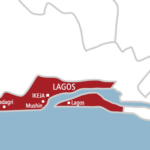The National Environmental Standards and Regulations Enforcement Agency (NESREA) is to collect over 300,000 tonnes of e-waste in Lagos.
This is part of the project on circular economy approaches for the electronics sector in Nigeria.
Director-General of NESREA, Prof. Aliyu Jauro disclosed this in Lagos during the opening of a four-day training for government regulators and the value chain as part of awareness creation on the circular economy approaches in the electrical electronics sector.
The Global Environmental Facility (GEF) fund project is implemented by the United Nations Environment Programme (UNEP) and executed by the NESREA with the project location is in Lagos.
According to Jauro, part of the objectives of the project on circular economy approaches for the electronics sector in Nigeria is to collect and treat 300,000 tons of e-waste.
He explained that e-waste if not properly handled could pose danger to humans and contaminate the environment.
“The capacity development is to empower government inspectors and relevant stakeholders with technical knowledge and the value chain to conduct their operations in an environmentally sound manner.
“Both new and used EEE contain hazardous substances, which can contaminate the environment if the processing of end of life equipment or e-waste is not properly handled.”
He said the e-waste to be collected in the state would be treated in order to showcase the best way of collecting and treating the substance to practitioners in the electronics sector.
A representative of the Standards Organisation of Nigeria (SON), Dr. Justin Bartholomew endorsed the e-waste collection programme.
He said the training would empower the regulators to be able to evaluate the compliance of electronic product manufacturers.

 Join Daily Trust WhatsApp Community For Quick Access To News and Happenings Around You.
Join Daily Trust WhatsApp Community For Quick Access To News and Happenings Around You.


